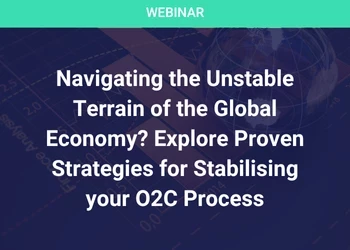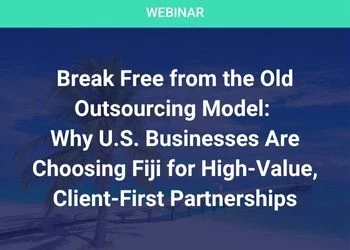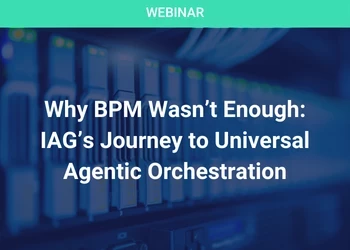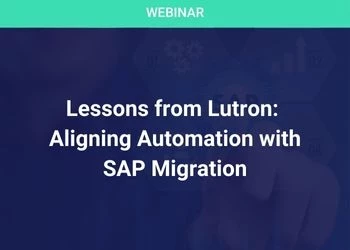Automation in GBS: The Pivotal Importance of the Right Mindset
Add bookmark
Process automation is a critical step in the life cycle of GBS maturity for many businesses. Properly managed, it can increase competitiveness, efficiency, and offer great value for the business’ customers. The primary objective of automation is to improve a company's workflows. This is typically driven by the intention to reduce costs, save time, or reduce waste through errors.
Barbara Hodge, Global Online Editor of SSON and Host of SSONext, sat down with David Hughes, Shared Services Director for Bidvest Noonan, a leading facilities management business in the UK, providing Finance and HR support across the board. David has over 20 years of experience designing and operating world-class GBS operations. He has a passion for creating values-based cultures and great places to work, where people are inspired and motivated to achieve their full potential.
Lead with simplicity when it comes to process automation
“Rather than just trying to look at every single process and identify an opportunity for automation, the kind of mindset that I take with my team is that it's all about scale. If you think about GBS, it's about driving efficiencies through economies of scale. Typically through a platform that can be leveraged to allow business to be much more flexible, integrate acquisitions quickly, grow, scale back, and scale up. When you look at your opportunities, if your focus is to drive an improvement in scale and the ability to flex and grow, then that's got to get laser sharp and become your primary focus. There are too many automation technologies out there (to start with a tool).” David explains.
Digital transformation is a phrase that businesses have been talking about for a long time. Many businesses intuitively recognize the benefits that automation brings, but have problems keeping their momentum when it comes to deploying the solutions. A key reason for that loss of momentum is cost concerns. The cost involved in developing software, which is often bespoke to each organization, can be prohibitive. If there is complexity in your process, it will make for more complex automation. Ergo, simplification at the process level, before automation plans even begin, is a smart way to avoid putting the cart before the horse.
“In my experience, complexity comes from the different levels of variation that you have. Let’s take AP (accounts payable) processes as an example; you've got large numbers of suppliers, different payment terms, different invoice formats - all of these things are layers of complexity. So, what we're really doing when we look at a process is viewing things through a lens of what is creating complexity in a process, and then aim to simplify it. The business generally wants to go the opposite direction! They want as much variation as possible. Instead, we need to switch our mindset to think about ‘how can we minimize the variation in process as much as possible?’ That's where I think automation is a really powerful tool. Once you’re able to say, 'we’ve got this great process that works,' and then automate, you’ll save yourself a lot of time and money. I'm a big believer in selling the benefits of automating an existing process that already just works, rather than stepping outside of the norm.” David explains.
The importance of Process Mining
Process Mining is a powerful tool that must be a part of any automation program. It gives you real insight into your data and helps you analyze where simplification can be found. A clear process of mining cuts through a lot of anecdotes and gives you usable insight into what's working and what's not. While there are a plethora of different process mining technologies out there, David invites companies to bring things back to the skill sets involved, which is the analytical mindset of the members of your team that will be using the technology.
Stay open to learning about new automation opportunities
Accelerating progress in AI and automation is creating opportunities for businesses, the economy, and society. “Having a strong mindset that never accepts and lives with things as they are is key. Build a culture that encourages curiosity, and the ability to look outside your organization.” David says.
Enjoy the audio medium? You’ll find a lot more detail in this full discussion between Barbara Hodge and David Hughes here on Spotify or Apple Music.































